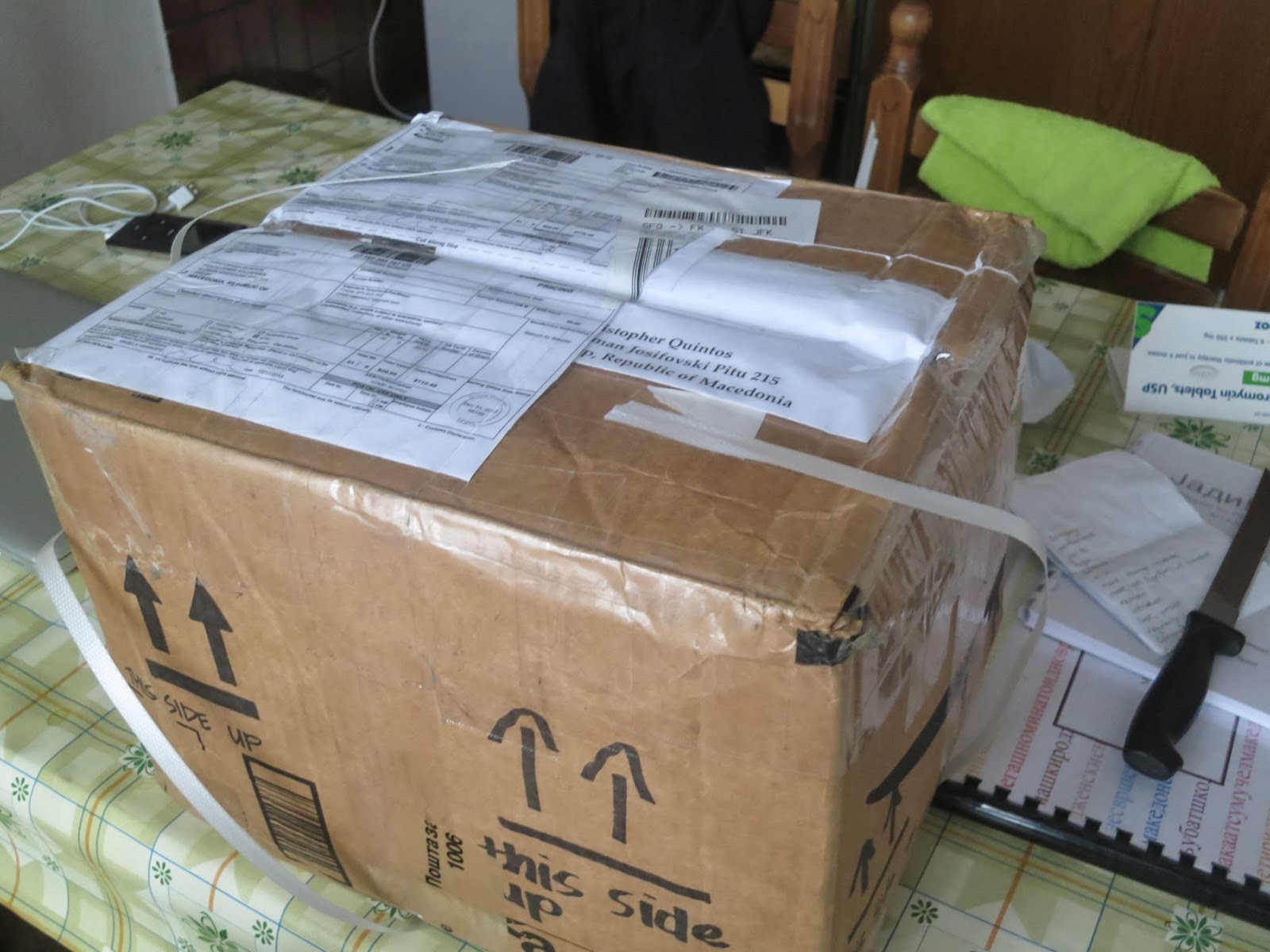So I apologize, but this is the second post in a row that
will be a bit of a history lesson.
As I mentioned in the previous post, Macedonia used to be a
part of the Ottoman Empire. Starting in
the 14th Century, the Ottomans invaded the Balkans, defeating the
Serbs at the Battle of Kosovo in 1389.
Thus, Macedonia was subjected under the Ottoman Empire until the Balkan
Wars in the 1900s. Upon conquest and
assimilation, many people eventually converted to Islam, including those in
Albania and Bosnia. However, many
Christians and Jews were allowed to practice their religion. Therefore, many Greeks, Macedonians, Serbs,
Bulgarians, and Armenians continued to practice Christianity under the Ottoman
rule, but they lived their lives as second-class citizens. However, some young Christian boys were
conscripted each year, stolen from their villages and towns in the Balkans and
brought to Istanbul to be converted to Islam and to serve in the military.
Although Turkish was the official language, many people were
allowed to speak their mother tongues, so the Slavic languages continued to
exist despite Ottoman rule. Turkish and
Arabic were often used for administrative purposes, and thus connected the
provincial governments with the civilian and military centers in Istanbul.
However, while the Macedonians continued to practice their
religion and speak their language, they adopted many Turkish customs. For example, many Macedonians drink coffee in
the “Turkish way”, boiling finely grounded coffee with water, without any
filter (it is really delicious). Turkish
delicacies, like baklava and Turkish delights, are sold in various shops across
the country and often cooked at home for special occasions. Also, many Turkish words are still in use in
the Macedonian language, including дуќан
(which means shop) and ајде (which is difficult to translate, but sort of means
“let’s go” or “alright”). Therefore,
while the Ottoman Empire was a host to diverse peoples, from Baghdad to
Belgrade, and from Algiers to Cairo, certain traditions and a common
administrative tongue kept the empire cohesive.
Despite the
Turkish traditions that exist until today, no Turkish influence is as pervasive
in modern Macedonia as the “Turkish films”.
Sitel, the most popular television network in Macedonia, has aired
numerous Turkish films since my arrival in Macedonia, including Аси (Asi), Солзите
на Мојата Ќерка (Tears of My Daughter), Субината на Фатмаѓул (The Fate of
Fatmagjul), and Бурни Времиња (Tumultuous Times). These films are series, or basically Soap
Operas, and they are aired on other networks as well (but Sitel has the funds
to choose the ripest of the bunch).
Other series are also aired in Macedonia, including Hindi series
(usually earlier in the day) and Telenovelas (some time ago Macedonians had a
“fever” for Spanish soap operas).
For many Peace
Corps volunteers, watching Turkish soap operas was the only way to bond with
the host familes when then sun went down.
Dinner was often served in front of the television as the soap operas
aired. When our vocabulary was low and
interest in soap operas nonexistent, these shows were very dull for us. Also, soap operas are not the best way to
practice the language, as story lines are never straight, and plot twists are
hardly conceivable. However, as we
became invested in the characters and the story line, and as we were waned off
of American television, our interest in the soap operas grew. In the end, the Turkish soap operas became
the connection between us and our host families.
As I moved to
Prilep, I figured I had nothing in common with my 60-year old host mother. She is a very quiet woman, and I still have
not figured out if she has any hobbies or interests besides flowers. However, she was a big fan of Субината на
Фатмаѓул (The Fate of Fatmagjul) and Бурни Времиња (Tumultuous Times), and as
we watched these shows together, I had a chance to connect with her and
practice my Macedonian. For example, how
is Soner related to Cemile? To how many
men has Caroline been a mistress? Why is
Osman hiding from the military? And why
is the butler, Süleyman, such a badass?
 |
| The poster for Бурни времиња. |
 |
| Osman, the character that a waiter once called me back in December. |
 |
| Why is this butler so badass? |
Well, tonight is the last episode of Бурни Времиња, and even though there will be other
Turkish soap operas to replace it, it is difficult to keep up. All of the soap operas are dubbed with
Macedonian actors, and since the actors dub every single series, it is
difficult not to associate a new character with one from a previous show when
they have the same voice.
In the end, the
Turkish Soap operas have served a similar purpose to that of the rule of the Ottoman
Empire. The shows have connected me to
my host family, bringing two different cultures together to enjoy that of
another. The shows are also dubbed in
Albanian on a different channel, so Macedonians and Albanians have something in
common to discuss, if they wish to do so.
Unfortunately, now as the show ends, I lack a common thread to connect
with my host mother. So as the winter
months continue, I must brainstorm to find a way to continue our conversations. Also, I will miss those insane violin rifts
that are so catchy. (To watch a preview
of the show, see below)





